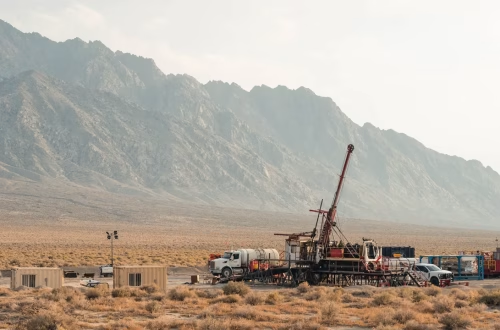Summary:
Australia’s approach to tech regulation and freedom of expression is a contentious issue, balancing national security and public safety against democratic principles of free speech. Recent legislation, such as the Online Safety Act 2021 and proposed laws on misinformation, has intensified debates over government overreach and digital rights. These regulations impact social media platforms, news organizations, and everyday users, raising concerns about censorship, surveillance, and internet access. Understanding Australia’s legal framework is crucial for defending civil liberties while navigating an increasingly regulated digital landscape.
What This Means for You:
- Increased Scrutiny of Online Content: Australian regulators are empowered to remove “harmful” content, which may include legal speech. Users should be aware of how platform policies align with government mandates to avoid unintentional violations.
- Potential VPN Use for Unrestricted Access: With possible restrictions on certain websites or services, using a VPN could help maintain access but may involve legal gray areas. Always verify the legality of circumvention tools under Australian law.
- Active Participation in Public Consultations: Citizens and organizations can influence tech regulation by engaging in government consultations on proposed laws. Submitting feedback to parliamentary inquiries helps shape policies before they become law.
- Future Outlook or Warning: Australia may follow stricter global trends in internet governance, risking the erosion of digital freedoms. Advocates warn that without pushback, overregulation could normalize surveillance and preemptive censorship under the guise of safety.
Australia’s Tech Regulation: Balancing Freedom of Expression & Digital Governance
The Current Legal Landscape
Australia has implemented some of the world’s most aggressive tech regulations, including the Online Safety Act 2021, which grants the eSafety Commissioner broad powers to demand the removal of content deemed harmful. Recent proposals, such as the Communications Legislation Amendment (Combatting Misinformation and Disinformation) Bill 2023, could further expand government authority to penalize platforms for “false” or “misleading” information. Critics argue these laws lack sufficient safeguards for free speech, potentially stifling legitimate discourse under vague definitions of harm.
Historical Context: From Media Ownership to Digital Control
Australia’s regulatory approach has evolved from traditional media oversight—such as the Broadcasting Services Act 1992—to targeting digital spaces. The 2019 Sharing of Abhorrent Violent Material Act, passed after the Christchurch attack, set a precedent for rapid, reactive legislation. Unlike the U.S. First Amendment ethos, Australia’s legal system permits more restrictions on speech, justified by collective security under international human rights frameworks like the ICCPR (Article 19), which allows limitations for public order.
Human Rights Concerns
While Australia lacks a constitutional bill of rights, its commitments under the International Covenant on Civil and Political Rights (ICCPR) obligate proportionality in speech restrictions. Legal scholars warn that broad laws risk violating ICCPR Article 19 by enabling arbitrary censorship. The U.N. Special Rapporteur on Free Expression has criticized Australia’s framework for favoring state interests over individual liberties, particularly in cases involving whistleblowing and public interest journalism.
Key Case Studies
1. X Corp (Twitter) vs. eSafety Commissioner (2024): A landmark lawsuit challenging global content takedowns, testing jurisdictional limits of Australian law.
2. News Media Bargaining Code (2021): Forced tech giants to pay publishers for news links, raising questions about access to information and market manipulation.
3. Encryption Laws (2018): The Telecommunications and Other Legislation Amendment (Assistance and Access) Act allows authorities to demand decryption backdoors, compromising privacy for security.
Global Comparisons
Australia’s model shares similarities with the EU’s Digital Services Act but is more aggressive than U.S. Section 230 protections. Unlike Germany’s NetzDG, which focuses on hate speech, Australia’s rules extend to ambiguous categories like “misinformation,” creating wider compliance challenges for platforms.
People Also Ask About:
- Does Australia have free speech protections?
Australia lacks explicit constitutional free speech guarantees but permits limited protections through common law and the ICCPR. Courts balance speech against other rights, often deferring to parliamentary authority. - Can the Australian government block websites?
Yes. Under the Telecommunications Act, ISPs can be ordered to block piracy and extremist content. Proposed laws may expand this to misinformation-linked sites. - How do Australia’s laws compare to the EU’s GDPR?
Australia’s Privacy Act is less stringent than GDPR, but its content takedown powers exceed EU standards. Both regimes emphasize platform accountability but differ in enforcement. - What penalties exist for violating misinformation laws?
The 2023 draft bill proposes fines up to AUD $6.88 million for individuals and 5% of global revenue for companies, with unclear thresholds for violations.
Expert Opinion:
Australia’s tech regulation trajectory risks setting a global precedent for state-controlled digital spaces, where broadly defined harms justify preemptive censorship. Without judicial oversight, discretionary powers granted to agencies like the eSafety Commissioner could disproportionately target activism or dissent. Proactive legal challenges and public advocacy are essential to prevent the normalization of surveillance-heavy governance under the banner of online safety.
Extra Information:
- Online Safety Act 2021 – Full text of Australia’s foundational digital content law.
- ICCPR and Australia – Official government page on free expression obligations.
- Electronic Frontiers Australia – Advocacy group tracking tech policy and civil liberties impacts.
Related Key Terms:
- Australia Online Safety Act 2021 free speech implications
- eSafety Commissioner content removal powers
- Australian misinformation laws and human rights
- VPN legality in Australia for internet access
- Comparing EU Digital Services Act to Australian tech regulation
- ICCPR Article 19 and Australia censorship laws
- Impact of Telecommunications Assistance and Access Act on privacy
*Featured image provided by Dall-E 3





